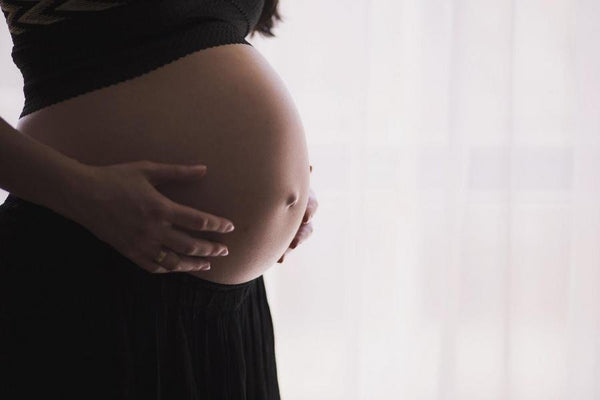Changes to Your Period After Pregnancy That No One Tells You About

You experience many physical changes after giving birth and many of them you expect (like retaining some of your pregnancy weight and fuller breast), but no one ever really talks about your period after pregnancy. Let me be the one to break it to you and let you in what really happens:
Unpredictable Cycle
While you may have enjoyed living period-free for 9 months, the ups and downs of postpartum hormones can wreak havoc on your cycles. Your once predictable 28-day menses may be replaced with a 35-day cycle that that drags on for eight days one month, just to have another period show up 21 days later. Your typical cycle should resume within a few months.
Your Flow May Be Heavier
If you are like me and experienced your “average” flow before baby, you may be surprised when your period finally returns and it’s heavy AF. It’s pretty shocking really, but stay calm as this is completely normal. Menstrual flow varies considerably, but if you have concerns about your bleeding, speak with your doctor.
Breastfeeding and Periods
Nursing is important for a number of reasons, but it can delay the return of your cycles. Breastfeeding exclusively (as in baby only receives breast milk, nothing else) decreases hormones in your body, suppresses ovulation and can impede your menses, especially the first six months after birth. Awesome. However, breastfeeding shouldn’t be relied upon as your primary method of contraception, so make sure to back it up with another form of birth control.
Clots
Clots happen. They are normal and natural, but they can still cause distress, particularly if you’ve never experienced them before. They’re usually at their worse during heavy flow days when you are suffering from atrocious cramps. The blood from your uterus exits so quickly, it doesn’t give your natural blood thinner’s (anticoagulants) time to catch up, which results in the jelly-like substance you find on your pad or tampon. Take note, passing clots larger than the size of a quarter isn’t normal, so follow-up with your healthcare provider.
Killer Cramps
Cramps suck and you’re a badass for dealing with them month after month. Wanna know what’s worse…stronger, more intense cramps. While some women find that their cramps stay the same or even lessen after giving birth, you could be the lucky gal with more midsection aches (just like me). Generally, menstrual pain tends to be most intense about 24 hours after your period starts but it should let up after 2 or 3 days. Experts believe that your agonizing post-pregnancy cramps may be related to changes in your uterus which causes more of your lining to shed. There are many techniques for treating your cramps – some more interesting than others.
PMS May Be Through the Roof
No, you’re not crazy; your PMS symptoms have worsened since the baby. You’ve spent most of your life dealing with the typical symptoms that show up 1 to 2 weeks before your time of the month. You’ve got this! But pregnancy hormones, they can mess you up. You see, the chemicals in your brain don’t respond well to your hormonal fluctuations. Plus, the added fatigue and stress of motherhood only intensify your symptoms. Do yourself a favor. Get adequate rest. Avoid foods with salt and sugar and drinks with caffeine to the best of your ability and stay active. As time passes and your hormones stabilize, your PMS symptoms should improve.
It Gets Better
Motherhood marks a new chapter in life with unique experiences and changes including those to your cycle. There is no way to know what your period will look like so in the meantime, snuggle up with your adorable baby and stay period prepared.
0 comments